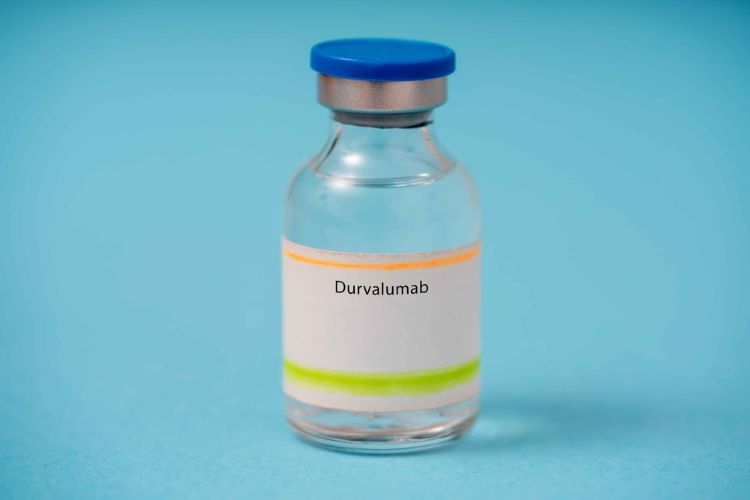AstraZeneca immunotherapy could boost lung cancer survival
Posted: 3 June 2024 | Catherine Eckford (European Pharmaceutical Review) | No comments yet
Over half of patients were alive three years post-treatment with the monoclonal antibody (mAb) in AstraZeneca’s Phase III trial, data shows.


IMFINZI® (durvalumab) has demonstrated statistically significant and clinically meaningful improvements in survival rates in lung cancer, new Phase III trial results show. This is based on interim analysis findings from the ADRIATIC trial. AstraZeneca explained that as a human monoclonal antibody, the immunotherapy treatment works by binding to and inhibiting interaction of the PD-L1 protein with the PD-1 and CD80 proteins. As a result, this releases the inhibition of immune responses.
Key findings from the Phase III trial for durvalumab
IMFINZI (durvalumab) reduced the risk of death by 27 percent versus placebo, according to the data.
The immunotherapy enabled an estimated median overall survival of 55.9 months in patients treated with IMFINZI, compared to 33.4 months for individuals receiving placebo.
A total of 57 percent of patients administered with IMFINZI had survived three years after treatment, versus 48 percent on placebo.
The risk of disease progression or death was reduced by 24 percent after IMFINZI treatment versus placebo.
Median progression-free survival was found to be 16.6 months for IMFINZI versus 9.2 months for placebo.
An estimated 46 percent of patients treated with IMFINZI did not experience disease progression at two years compared to 34 percent on placebo.
Potential as a new standard of care
“Durvalumab is the first systemic treatment to show improved survival for [limited-stage small cell lung cancer] patients in decades and should become a new standard of care in this setting”
Based on these trial results, “Durvalumab is the first systemic treatment to show improved survival for [limited-stage small cell lung cancer] patients in decades and should become a new standard of care in this setting,” Dr David Spigel, Chief Scientific Officer at Sarah Cannon Research Institute and investigator in the trial stated.
“The strong improvement in overall survival seen with IMFINZI after concurrent chemoradiotherapy is transformative in the treatment of limited-stage small cell lung cancer,” shared Susan Galbraith, Executive Vice President, Oncology R&D, AstraZeneca.
These positive findings for the immunotherapy were presented at the 2024 American Society of Clinical Oncology (ASCO) Annual Meeting.
Related topics
Anti-Cancer Therapeutics, Biologics, Biopharmaceuticals, Clinical Development, Clinical Trials, Data Analysis, Drug Development, Drug Safety, Industry Insight, Therapeutics
Related organisations
Related drugs
Related people
Related diseases & conditions
Cancer, Extensive-stage small cell lung cancer (ES-SCLC), Lung cancer









